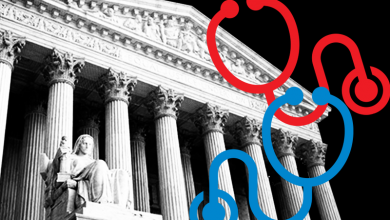The Newest Member of the Healthcare C-suite? The Chief AI Officer


The age of the healthcare chief AI officer has arrived. CAIOs are starting to appear at large hospitals and health systems — the latest development as more providers dedicate resources and create strategic leadership roles to apply AI across the enterprise, rather than relying on siloed IT departments or haphazard, scattered projects.
A recent survey by global consulting firm Berkeley Research Group found that three-quarters of healthcare providers and pharmaceutical professionals expect AI to be widely adopted in the next three years — even though only about 40% have considered or plan to consider AI regulatory guidance.
While optimism about the potential benefits of AI, such as improved diagnostics and reduced administrative burden, remains high, concerns about data privacy, cybersecurity, and the need for regulatory safeguards remain significant among industry stakeholders.
Tom O’Neil is a managing director at BRG and knows some of the first AI leaders in healthcare. He has extensive experience in the private and public sectors and has led in boardrooms and C-suites across consumer, financial services, and healthcare. We asked O’Neil to describe what boards and C-suites should consider when incorporating AI roles into healthcare systems.
Q. Why do you believe hospitals and health systems should have a chief AI officer or similar title?
ONE. AI in healthcare presents both opportunities and challenges for life sciences companies, healthcare providers, and payers in the healthcare ecosystem. It is no surprise that a growing industry best practice is the appointment of a chief AI officer.
This role is increasingly important in leading organizational approaches to integrating AI into clinical workflows, reducing physician burden, improving quality of care for patients, establishing accountability, and ensuring a strong governance structure for successful AI implementation in healthcare.
BRG’s AI and the Future of Healthcare report, published earlier this year, found that current IT and security governance models from industry professionals are inadequate to manage AI development and deployment, and that IT cannot assume full AI oversight. Given the complex ethical and regulatory landscape surrounding AI, through effective collaboration, a chief AI officer can provide the leadership and experience needed to help navigate regulations and mitigate potential risks.
Q. What should an AI director do?
ONE. A chief AI officer provides long-term strategic vision and alignment for organizations. In addition to implementing AI projects, the CAIO also considers the broader implications of AI, such as changes to operations and culture. The CAIO ensures that AI systems are developed and deployed ethically, transparently, and responsibly.
To do this, CAIO monitors data privacy, minimizes algorithmic bias, and uses AI responsibly, protecting patient trust and maintaining the highest standards of care.
Dennis Chornenky, chief AI advisor at UC Davis Health and former CAIO for UnitedHealth Group’s Optum business, said the CAIO’s primary responsibility is to accelerate the adoption of AI capabilities while ensuring a balance between safety and innovation.
Q. Who should an AI director report to and why?
ONE. The short answer is that it depends on the size and maturity of the organization, as well as the level of resources allocated to AI within the organization.
Ideally, a chief AI officer will report to a leader in the C-suite to bring about changes that will implement a successful AI program within the organization. Most likely, chief AI officers will report to the CIO or chief digital officer, but they may also report to the COO, CFO, CMO, or even the CEO.
Q. Why should service providers determine whether to implement this role and how will they interact with AI centers of excellence?
ONE. Service providers should consider taking on this role as the CAIO will establish a responsible leadership team with the necessary expertise and strategic acumen to prioritize workflows appropriately and in a timely manner, improve the quality of care using clinical AI tools, and ultimately ensure that the organization can compete effectively in the market as AI becomes increasingly important in the healthcare industry.
Once appointed, the CAIO must develop and lead AI centers of excellence, i.e. an organizational unit dedicated to AI development, with significant financial resources, and the skills and experience necessary to successfully deploy AI.
Successful AI centers of excellence go beyond an organization’s IT department. AI projects that impact clinical operations and patient care must involve individuals with expertise in technology, quality of care, compliance with legal and regulatory requirements, and business ethics.
The organization should assemble a multidisciplinary team with diverse socioeconomic backgrounds, including a dedicated clinician, operations specialists, technology experts, and legal/compliance reviewers.
Follow Bill’s HIT coverage on LinkedIn: Bill Siwicki
Email him: [email protected]
Healthcare IT News is a publication of HIMSS Media.




